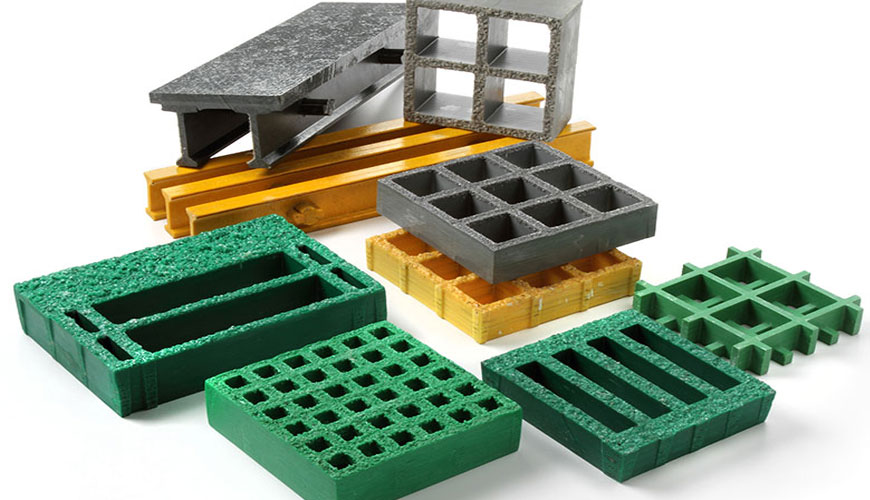

EUROLAB, with its state-of-the-art accredited laboratories and expert team, provides precise and fast testing services within the scope of ISO 1268-6 testing. This part of ISO 1268 specifies a pultrusion molding method for the preparation of reinforced plastic test plates to be used in the preparation of test specimens to determine the mechanical and physical properties of the laminate.

The method can be applied to laminates made of thermoset or thermoplastic resins reinforced with glass, carbon or aramid fibers, alone or in combination, and in any form suitable for pultrusion (continuous rovings, tows, felts, fabrics or combinations thereof).
The pultrusion process is unique among processes for the manufacture of fiber-reinforced composites in that it can produce continuous profile lengths with complex geometry and different fiber content, orientation, and reinforcement material type within the profile. Satisfactory performance in service may depend on the properties of profile parts that are too small for their properties to be verified by cutting test specimens from the profile, or that have an unsuitable shape.
If test specimens meeting the required test conditions cannot be obtained from the production profile, it is necessary to produce a representative flat strip laminate made from the same materials and under the same processing conditions as the production laminate. The test specimens can then be cut from the representative flat strip in accordance with the relevant mechanical test method.
This part of ISO 1268 defines a procedure for the manufacture of such representative laminates. The method can also be used to compare the performance of alternative input materials and alternative profile production conditions. The reinforcement is impregnated with a suitable resin and drawn through a forming die under certain conditions to consolidate the matrix system and create a flat strip profile.
The flat strip profile should be wide enough to allow the required length of test specimens to be cut perpendicular to the production direction or in other specified directions.
The reinforcement content, the nature of the reinforcement and the orientation of the individual layers in the laminate should be as defined in the test sheet specification or by the person ordering the manufacture of the test sheet. In any case, there must be sufficient reinforcement to completely fill the mold cavity.
EUROLAB assists manufacturers with ISO 1268-6 test compliance. Our test experts, with their professional working mission and principles, provide you, our manufacturers and suppliers, the best service and controlled testing process in our laboratories. Thanks to these services, businesses receive more effective, high-performance and quality testing services and provide safe, fast and uninterrupted service to their customers.
To get an appointment, to get more detailed information or to request an evaluation, you can ask us to fill in our form and reach you.